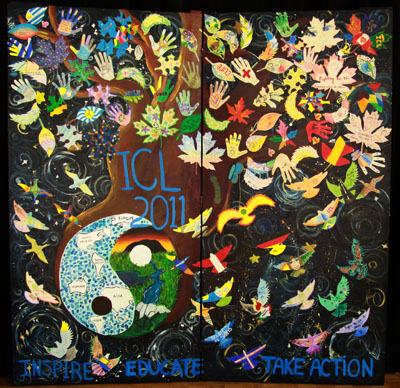
As Americans begin to evaluate the US candidates for the next presidential election, everyone will ask himself or herself this question: How will they lead? Will those who seek to serve this country in its top job understand the major issues, be passionate about their ideals, and then be able to inspire and educate their peers to take action so as to make a positive difference in the lives of the American people?
Leadership is a complex proposition. Wanting to serve is probably the most important first step, but there are never simple answers or quick fixes along the challenging road to making a sustainable difference. A group of talented students from 30 different countries and very diverse socioeconomic backgrounds understand this better since they got the chance to sharpen their perspectives and broaden their leadership skills this year. Hand picked from hundreds of applicants by a prestigious international panel of judges, including Monica Seles, Brandon Short, Sir Jeremy Greenstock, Ambassador Mitra Vasisht, and HRH Prince Rashid el Hassan, these young people won the opportunity to attend the elite ICL Academy (Institute of Civic Leadership — think Hogwarts for civic leadership). The Academy stands high on a hill surrounded by the world’s largest temperate rain forest, footsteps away from Lake Shawnigan on the magical island of Vancouver in British Columbia.
Finding your passion changes everything. The mission of ICL is to inspire students through other people’s passions and journeys, teach them how to relate it back to their own lives and passions, and equip them with the leadership skills that enable them to take action so that they can make a positive difference when they return home to their schools and communities.
Lucky me! I got the chance to connect with a sample of these talented 15 to 18 year old graduates (i.e. future leaders) after they returned home, to find out more about them and the outcomes of this once in a lifetime summer experience.
First up, I should mention their real-life role models. They include leaders such as Barack Obama “for his tolerance, acceptance and open mindedness to other countries and cultures,” and Oprah Winfrey “for her hard work to become an independent woman and her strong passion to help disadvantaged young women around the world.” Then there are fans of Ban Ki Moon “for his ability to remain neutral while leading the world’s efforts to combat war, disease and human rights violations,” and Wyclef Jean “for his continuing passion to give back to his country by providing educational scholarships as well as raising environmental awareness.” Last but not least in my survey was the popular co-founder of ICL, Kirk Spahn, “for his incredible ability to connect with people on a very deep level.”
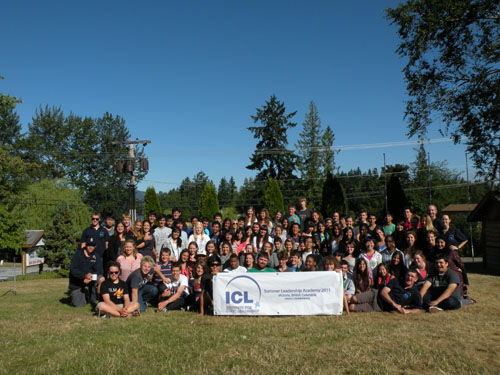
Finding your passion changes everything. The ICL teaches global youth leaders dedicated to service.
So, just how effective was their training program? If the ICL program is just a beginning, how might these young adults respond to “How are you a leader? How have you made a difference?” several months after graduation?
“I am (currently) setting up a compost heap at my school,” Julia Masselos (London, England) explains. “I’ve educated and encouraged students, cafeteria staff and chefs to compost any peelings or leftovers from lunch.” The compost will be used to fertilize the rose garden at school or be donated to local farmers so they don’t have to use chemical products.
Daniel Rodriquez (Oxnard, California) explains the program taught him how to work better with others and motivate them to work better with him. “Along with a fellow I met at ICL,” he says, “we developed plans to go to nearby schools to give gang violence and gang prevention presentations to inspire students through education to take action with us on the issue.”
Zeinab Al-Mohanawy (formally Lebanon now Seattle, Washington) tells me she is in the process of “creating a leadership course for at risk and underprivileged young girls who come from disadvantaged neighborhoods to have the opportunity to change the way they look at things in this world through hands on leadership lessons and activities.”
Dylan Sparks (Johannesburg, South Africa) says that for the first time in his life he asked himself what his morals were and what he is willing to stand up for. In terms of how he is using lessons learned at the Academy, he explains, “I have created personal and academic goals for myself. Giving yourself something to aim for not only gives you a clearer idea of where you are going and what you want to do, but it also motivates you,” he says. “Then you work to create steps that will help you get there!”
Savannah Swann (Vancouver Island, British Columbia) says, “I learned effective ways to convey my ideas, despite my quiet nature, in such a way that engages others to see the value in my passions. Education of youth is vital to the global community. I plan to use the new presentation skills I learned to help me convey my interests and ideas with complete confidence.”
“I have learned to be a balanced leader,” says Taji Phillips (Brooklyn, New York), “to be able to humble myself and express understanding towards others, but also to acknowledge the power and responsibility I’ve been granted for the benefit of those who rely on me. I encourage my peers not to wait to do the things they want. If they want to raise money to plant trees in Central Park, DO IT; if you want to clean the beach, DO IT; if you want to reduce homelessness in NYC, DO IT. You are not alone. I will help you!”
“I believe perseverance, patience, tolerance and generosity form the base of a true leader,” says Daniela Pfeffer (Montevideo, Uruguay). “These were without question the most inspiring and motivating weeks in my entire life. The range of cultural diversity was huge. It has made me a richer person. The network we formed will last forever and we will make great changes if we work together.”
So what can Barack Obama, Oprah Winfrey, Ban Ki Moon, Wyclef Jean, Kirk Spahn, and indeed, all of us learn about leadership from these young adults? Well naturally, I have calls into all of their role models to ask, but while I wait to hear back, let me just share Kirk Spahn’s response to my question.
“I learned the most about myself through the students in the leadership program. Their passionate enthusiasm and unstoppable drive was contagious. I was so reinvigorated, so inspired by their personal stories, their journeys, as well as their constant idealism and optimism. So many of them have persevered through so much in their lives already, and overcome tremendous adversity, but they don’t even realize it. It is remarkable that they want to continue dedicating themselves to helping others.”
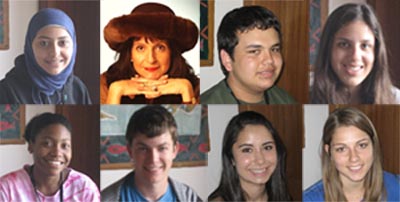
For more information on the Institute for Civic Leadership, founded at the Dwight School in Manhattan, visit www.iclny.org
Photos courtesy of ICL and the Dwight School.
Follow C. M. Rubin on Twitter: www.twitter.com/@cmrubinworld

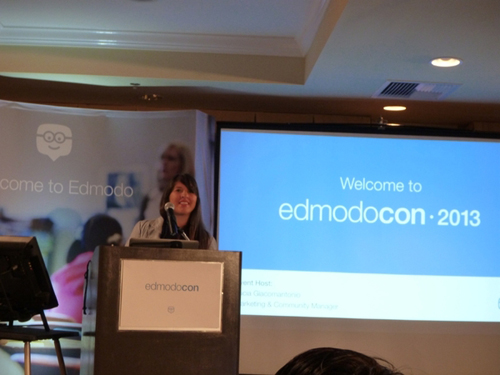
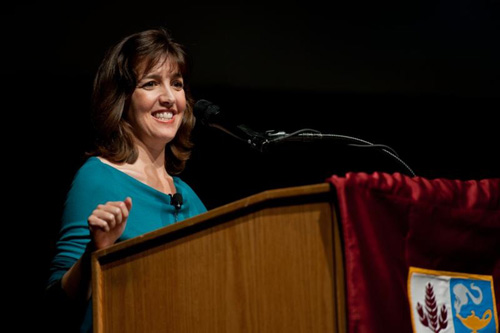
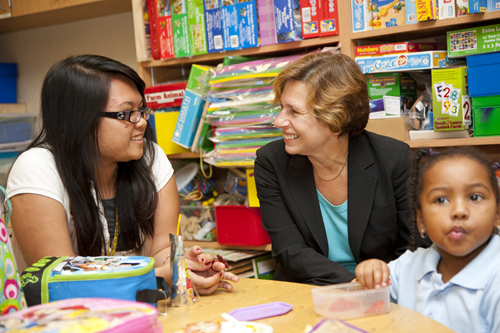
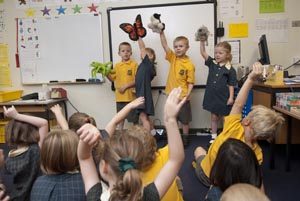
Recent Comments